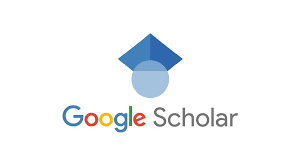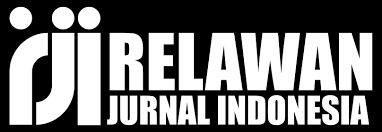Revolusi Industri 4.0
DOI:
https://doi.org/10.61722/jiem.v3i1.3388Keywords:
industrial market;industry 4.0Abstract
Industry is one of the main points in a kind of regional economy which has the strength to support the economy in a developed region and is strong in competition. In technological developments that continue to grow rapidly, industry must be able to improve a method or strategy when experiencing globalization. Industry 4.0 ushers in an era of digital transformation that integrates advanced technologies such as the Internet of Things (IoT), artificial intelligence (AI), and automation into industrial processes. The aim of this research is to analyze the readiness of the Indonesian industrial market to face the challenges and opportunities of the Industrial Revolution 4.0. This study uses various readiness indicators such as technological infrastructure, human resources and government policies to assess the extent to which Indonesian industry utilizes digital technology to increase productivity, efficiency and global competitiveness. Despite significant progress, some sectors still face challenges in technology adoption, skills development and infrastructure support. Recommendations are provided to accelerate industrial readiness to face global change through collaboration between government, the private sector and educational institutions. This research aims to analyze Indonesia's readiness to face the industrial revolution 4.0.
References
Adrian Adrian. (2019). Kesiapan Sumber Daya Manusia Indonesia Dalam Era Industri 4.0 . Jurnal Manajemen & Bisnis Jayakarta , 1 No 1, 33–38. http://journal.stiejayakarta.ac.id/index.php/JMBJayakarta/article/view/ 12%0Ahttps://journal.stiejayakarta.ac.id/index.php/JMBJayakarta/article/download/12/12
Agyztia Premana, Gian Fitralisma, Andi Yulianto, M. Badruz Zaman, & M. A. Wiryo. (2020). Pemanfaatan Teknologi Informasi Pada Pertumbuhan Ekonomi Dalam Era Disrupsi 4.0. Journal of Economic and Management (JECMA), 2(2), 1–6. https://doi.org/10.46772/jecma.v1i01.219
Arifin, A. N., & A, Y. (2023). Sejarah Revolusi Industri dari 1.0 hingga 5.0.
Kafapet Unsoed, January, 1. https://doi.org/10.13140/RG.2.2.20215.24488
Damayanti, D. (2021). Human Resources Competency in the Era of Industrial Revolution 4.0Damayanti, D. (2021). Human Resources Competency in the Era of Industrial Revolution 4.0. Economics and Business Solutions Journal, 5(1), 13. https://doi.org/10.26623/ebsj.v5i1.3334. Economics and Business
Solutions Journal, 5(1), 13.
Dobrzański, L. A., & Dobrzańska-Danikiewicz, A. D. (2019). Why are carbon- based materials important in civilization progress and especially in the industry 4.0 stage of the industrial revolution. Materials Performance and Characterization, 8(3), 2–3. https://doi.org/10.1520/MPC20190145
Fitriana, A. N., Noor, I., & Hayat, A. (2014). PENGEMBANGAN INDUSTRI
KREATIF DI KOTA BATU (Studi tentang Industri Kreatif Sektor Kerajinan di Kota Batu) Aisyah Nurul Fitriana, Irwan Noor, Ainul Hayat. Jap, 2(2), 281–286.
Gestry, O. :, Butarbutar, R., Any, P. :, Dan, W., & Aqualdo, N. (2017). Analisis Faktor-Faktor yang Mempengaruhi Pendapatan Usaha Industri Makanan Khas di Kota Tebing Tinggi (The Analysis Factors Of Typical Food Industry Revenues At Tebing Tinggi City). JOM Fekon, 4(1), 2017.
Ghufron, M. . (2018). Revolusi Industri 4.0: Tantangan, Peluang, Dan Solusi Bagi Dunia Pendidikan. Seminar Nasional Dan Diskusi Panel Multidisiplin Hasil Penelitian Dan Pengabdian Kepada Masyarakat 2018, 1(1), 332–337.
Hamdan, H. (2018). Industri 4.0: Pengaruh Revolusi Industri Pada Kewirausahaan Demi Kemandirian Ekonomi. Jurnal Nusantara Aplikasi Manajemen Bisnis, 3(2), 1. https://doi.org/10.29407/nusamba.v3i2.12142
Harahap, N. J. (2019). Mahasiswa Dan Revolusi Industri 4.0. Ecobisma (Jurnal Ekonomi, BisnisDanManajemen),6(1),70–78. https://doi.org/10.36987/ecobi.v6i1.38
Isventina, I., Nuryartono, N., & Hutagaol, M. P. (2018). Analisis Daya Saing
Sektor Industri Prioritas Indonesia Dalam Menghadapi Pasar Asean. Jurnal Ekonomi Dan Kebijakan Pembangunan, 4(1), 71–93. https://doi.org/10.29244/jekp.4.1.71-93
Kementrian Perindustrian RI. (2018). Indonesia Industry 4.0 Readiness Index.
Kementrian Perindustrian RI, 1–23.
Mello, J. A. (2015). SHRM [ Jeffrey A. Mello] 4th Edition Strategic Human Resource Management (@Shahriar Anum, Academia.edu ). 1–693. www.cengage.com
Musnaini, M., Jambi, U., Wijoyo, H., & Indrawan, I. (2020). INDUSTRY 4.0 vs SOCIETY 5.0 (Issue September).
Paper_Garda4Dioda_MuhammadGaniBaihaqiDarussalam_2000333. (n.d.).
Satya, V. E. (2018). Pancasila Dalam Menghadapi Era Revolusi Industri 4.0.
Pusat Penelitian Badan Keahlian DPR RI, X(09), 19.
Setiono, B. A. (2019). Peningkatan Daya Saing Sumber Daya Manusia Dalam Menghadapi Revolusi Industri 4.0. Jurnal Aplikasi Pelayaran Dan Kepelabuhanan, 9(2), 179–185. https://doi.org/10.30649/japk.v9i2.36
Shelton, T. (2003). Information technology. In Science and Soccer: Second Edition. https://doi.org/10.4324/9780203417553
Suwardana, H. (2018). Revolusi Industri 4. 0 Berbasis Revolusi Mental. JATI UNIK : Jurnal Ilmiah Teknik Dan Manajemen Industri, 1(2), 109–118. https://doi.org/10.30737/jatiunik.v1i2.117
Dwiputra, M. F. A. (2021). Analisis Structure-Conduct-Performance (SCP) dan Efisiensi Internal Pada Industri Air Minum dan Mineral Dalam Kemasan di Indonesia. January. https://doi.org/10.13140/RG.2.2.13538.86723
Ekonomi, F., Sriwijaya, U., Palembang-indralaya, J., Ilir, K. O., & Selatan, P. S. (1829). Ekonomi pembangunan. 1–9.
Rekarti, E., & Nurhayati, M. (2016). Analisis Structure Conduct Performance (Scp) Jika Terjadi Merger Bank Pembangunan Daerah Dan Bank Bumn Persero Berdasarkan Nilai Aset Dan Nilai Dana. Jurnal Ilmiah Manajemen dan Bisnis Mercu Buana, 2(1), 36–50.
Teori, L. (1994). 2Ep17203. https://e-journal.uajy.ac.id/102/3/2EP17203.pdf, 11–24.
Downloads
Published
Issue
Section
License
Copyright (c) 2024 JURNAL ILMIAH EKONOMI DAN MANAJEMEN

This work is licensed under a Creative Commons Attribution-ShareAlike 4.0 International License.












